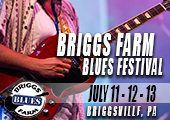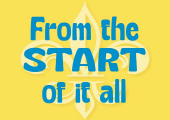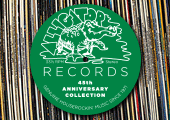About
F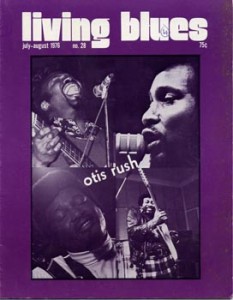 ounded as America’s first blues publication in Chicago in 1970, Living Blues magazine has set the standard for blues journalism around the world. From its first issue featuring blues legend Howlin’ Wolf on the cover, Living Blues has provided fans with insightful, in-depth stories on such legendary blues artists as Muddy Waters, B.B. King, Koko Taylor, and John Lee Hooker. In addition, Living Blues focuses on true creative originals like Otha Turner, Chris Thomas King, and Super Chikan, artists often overlooked by other blues press.
ounded as America’s first blues publication in Chicago in 1970, Living Blues magazine has set the standard for blues journalism around the world. From its first issue featuring blues legend Howlin’ Wolf on the cover, Living Blues has provided fans with insightful, in-depth stories on such legendary blues artists as Muddy Waters, B.B. King, Koko Taylor, and John Lee Hooker. In addition, Living Blues focuses on true creative originals like Otha Turner, Chris Thomas King, and Super Chikan, artists often overlooked by other blues press.
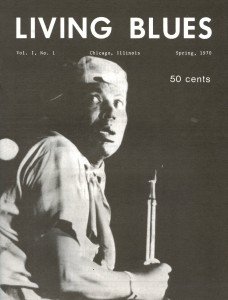 Living Blues is renowned for its detailed feature stories and exceptional photography. Our contributors include the absolute best in blues journalism, including Jim O’Neal, (who co-founded Living Blues in 1970), Barry Lee Pearson, David Whiteis, Scott Barretta and photographers Jack Vartoogian, Bill Steber, and Jim Fraher. Each issue of Living Blues features current Blues News, “Breaking Out” articles on up and coming artists, and the most extensive CD and DVD review section in the business. Each issue also contains the Living Blues Radio Charts providing the music industry with one of the most accurate compilations of playlists from blues radio programmers throughout the world.
Living Blues is renowned for its detailed feature stories and exceptional photography. Our contributors include the absolute best in blues journalism, including Jim O’Neal, (who co-founded Living Blues in 1970), Barry Lee Pearson, David Whiteis, Scott Barretta and photographers Jack Vartoogian, Bill Steber, and Jim Fraher. Each issue of Living Blues features current Blues News, “Breaking Out” articles on up and coming artists, and the most extensive CD and DVD review section in the business. Each issue also contains the Living Blues Radio Charts providing the music industry with one of the most accurate compilations of playlists from blues radio programmers throughout the world.
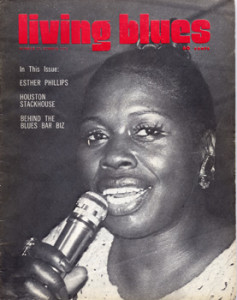 Living Blues was acquired by the University of Mississippi in 1983 and is published bimonthly by the Center for the Study of Southern Culture. Beginning in 2003, Living Blues has sponsored the Blues Today! Symposium each spring on the University of Mississippi campus. The Symposium has featured such keynote speakers as Paul Oliver, Samuel Charters, and Bill Ferris as well as intimate musical performances by Honeyboy Edwards, Little Milton, and B.B. King. In 2009, Living Blues was honored by the state of Mississippi with a Mississippi Blues Trail historical marker. Living Blues is also a past recipient of the Blues Foundation’s prestigious Keeping the Blues Alive Award.
Living Blues was acquired by the University of Mississippi in 1983 and is published bimonthly by the Center for the Study of Southern Culture. Beginning in 2003, Living Blues has sponsored the Blues Today! Symposium each spring on the University of Mississippi campus. The Symposium has featured such keynote speakers as Paul Oliver, Samuel Charters, and Bill Ferris as well as intimate musical performances by Honeyboy Edwards, Little Milton, and B.B. King. In 2009, Living Blues was honored by the state of Mississippi with a Mississippi Blues Trail historical marker. Living Blues is also a past recipient of the Blues Foundation’s prestigious Keeping the Blues Alive Award.
Commitment to Equity, Diversity, and Inclusion
Living Blues is an institute of the Center for the Study of Southern Culture at the University of Mississippi. You can find the mission statement of the Center here.
Since its inception in Chicago in 1970, Living Blues has been dedicated to promoting diversity, equity, and inclusion in its work. Through our in-depth coverage of African American blues music, artists, and culture, we are continuously building an oral history archive that documents the past and present and looks to the future of this dynamic art form. By providing a platform for musicians to tell their own stories in their own words, we elevate their voices and their experiences. We seek out underrepresented artists to feature in our magazine, and we engage with a variety of organizations and events to continually broaden our audience.










